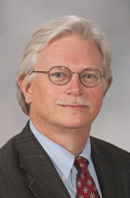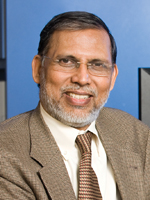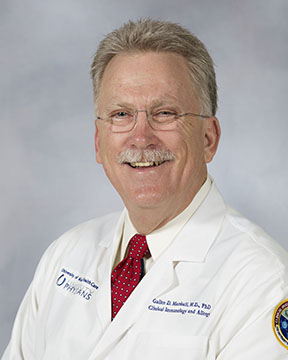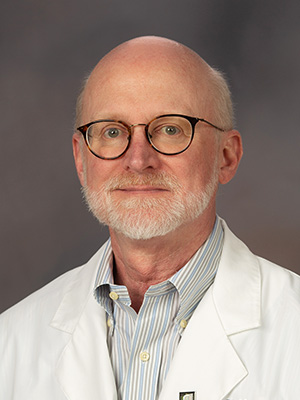UMMC scientists, leaders praise 21st Century Cures Act

University of Mississippi Medical Center scientists and leaders are celebrating the 21st Century Cures Act and its promise to advance biomedical innovation in the United States.
Passed by the U.S. House of Representatives Nov. 30 and the U.S. Senate today, the omnibus bipartisan bill provides more than $6 billion to fulfill the nation's health-care priorities. President Barack Obama is expected to sign the bill.

“I was very pleased to see the strong commitment in funding for biomedical research contained within the 21st Century Cures Act,” said Dr. Richard Summers, associate vice chancellor for research.
According to the bill, the National Institutes of Health will receive $4.8 billion in addition to its regular budget to focus on three objectives: the Cancer Moonshot, the Precision Medicine Initiative and the Brain Research through Advancing Innovative Neurotechnologies or BRAIN Initiative.
UMMC scientists in related disciplines are hopeful the new funding will translate to enhanced resources for the Medical Center's discovery enterprise.
The Cancer Moonshot, proposed by Vice President Joe Biden in 2016, aims to advance cancer research and make new treatments more available for their families.

“Mississippi has a significantly high cancer incidence and burden,” said Dr. Srinivasan Vijayakumar, professor and chair of radiation oncology and outgoing director of the UMMC Cancer Institute.
In addition to its prevention and treatment services, the UMMC Cancer Institute conducts basic and clinical research in the areas of tumor cell biology, genetics and therapeutics.
“Because of the diversity of our population, Mississippi can serve as a microcosm for our nation. UMMC and the Cancer Institute can be leaders in researching the causes, prevention, diagnosis and treatment of cancer.”
Vijayakumar said this is possible due to the rise of precision oncology, big data and electronic health records, which will “play a significant role in the future of medicine.”
The Precision Medicine Initiative, proposed by the President in 2015, is a patient- and data-driven project to improve the health of Americans.

“The relationships between genetics, environment and lifestyle choices are the basis for the development of precision medicine-based therapies that will effectively treat, and hopefully someday prevent, our most serious diseases,” said Dr. Gailen Marshall, UMMC professor of medicine and medical director of the UMMC Clinical Research and Trials Units.
“The potential benefits of the 21st Century Cures Act for Precision Medicine research in general and for the citizens of our state cannot be overstated,” Marshall said. Through recent strategic investments, “UMMC is being rapidly positioned to become a comprehensive 'bench to bedside and back again' research center that will allow us to participate even more effectively in acquiring funds from these new NIH resources.”
The BRAIN Initiative, proposed by the President in 2013, pledges to help scientists find new ways to image the brain, accelerating research on conditions ranging from Alzheimer's disease to traumatic brain injury.
Leaders of the UMMC Neuro Institute, established in 2016, are excited to see how the BRAIN Initiative can aid their efforts to study neurotrauma, stroke and addiction.

“This initiative supports cutting-edge research into the development of new tools that will allow us to mine the complexity of the brain in ways previously unimaginable, and lead to new ways to treat, cure and prevent brain disorders,” said Dr. Michael Lehman, UMMC professor and chair of neurobiology and anatomical sciences and chair of the Neuro Institute operating board.
Another entity that will benefit from the Cures Act is UMMC's Memory Impairment and Neurodegenerative Dementia or MIND Center.
“This important piece of legislation will direct billions of additional dollars to research at NIH over the next decade including funds to accelerate the development of new treatments for many brain disorders including Alzheimer's and related dementias,” said Dr. Tom Mosley, UMMC professor of medicine and director of the MIND Center.
“The huge toll to patients and families and the economic impact of dementing illnesses like Alzheimer's disease cannot be overstated. News of these new dollars is wonderful and welcomed and will no doubt advance our work,” he said.
The 21st Century Cures Act also grants the NIH the authority to conduct a prize competition called Ensuring Useful Research Expenditures is Key for Alzheimer's or EUREKA, a bill co-authored by Sen. Roger Wicker (R-MS).

“The EUREKA prize competition will direct the NIH to establish a competition for innovative science to combat these diseases. This incentivized program will help to shine a light on Alzheimer's and stimulate the biomedical community in this critical area of research,” Mosley said.
Mosley thanked Wicker for his legislative efforts, saying “Senator Wicker has been a persistent champion for accelerating efforts to find new treatments and prevention strategies for Alzheimer's and related dementias.”
The 21st Century Cures Act is not limited to research efforts. It also provides $1 billion over the next two years to tackle the burgeoning problem of prescription opioid and heroin addiction.
“This would also provide a major lift to our efforts to develop addiction clinical services and research as part of the Neuro Institute, and link it with our already strong basic research into understanding the neurobiology of substance abuse. These will be a boon to our state, where addiction is a major public health problem in great need of attention,” Lehman said.
The 21st Century Cures Act also includes provisions to streamline the drug approval process, increase electronic health record security and data-sharing programs, and reform mental health care. The bill must now go to the President, who has expressed his support and intends to sign it into law.


